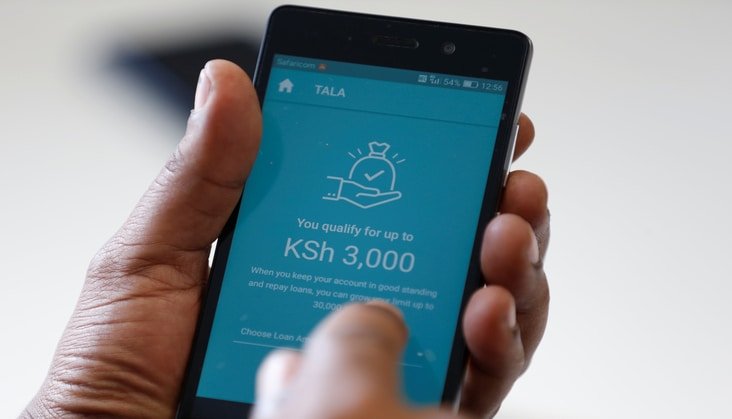Tala app, an online financial micro lending platform in Kenya, on a mobile phone. REUTERS/Thomas Mukoya The COVID-19 pandemic highlights the need for regulation of Kenya’s microfinance lenders, Habil Olaka, CEO of the Kenya Bankers Association, tells The Africa Report
Only Kenyan lenders which are licensed to take deposits are subject to central bank regulation, and only these lenders qualify for support from the country’s central bank. That’s even more worrying as credit-only microfinance institutions (MFIs) target loans to the “bottom of pyramid”, made up of the people most financially affected by COVID-19, says Habil Olaka. Those who lend to MFIs may not have incentives to give waivers, he said.
MFI lenders “don’t have a fall-back position. They are relying on shareholders or access in the market.”
Without outside regulation, the MFIs themselves can “easily become undisciplined.”
The same applies to mobile money lenders , who are also unregulated, says Olaka, a former director of operations at the East African Development Bank. “The debate should be about bringing them under the regulatory framework. There’s a need for a way for regulators to touch all the players.”
READ MORE Kenya: M-Pesa and mobile data boost Safaricom’s 2019 growth
Proponents of microfinance loans argue that high interest rates are needed to enable the industry to gain scale and so achieve wider financial inclusion. Critics says that means the costs of developing a new industry are in effect passed to those least able to support them.
In January, Opera a provider of short-term mobile loans in Kenya which is traded on Nasdaq, rejected claims by Hindenburg Research that annual lending rates alleged to range from 365% to 876% were predatory.
Opera denied that it had broken any rules. But the rulebook which Hindenburg argued was being breached was not that of any Kenyan regulator – but Google Play Store, which is used for distribution but which does not allow short-term loans.
READ MORE If it’s sold, shared or created online, Kenya wants it taxed
Kenya’s central bank in April ended the ability of unregulated digital and credit only lenders to give information to credit reference bureaus in response to customer complaints. That means the lenders can’t blacklist customers who are unable to repay. But without directly regulating the lenders, there may not be much more the central bank can do. Non-Performing Loans Kenyan banks overall are “not doing exceptionally well,” says Olaka. “Most borrowers […]
